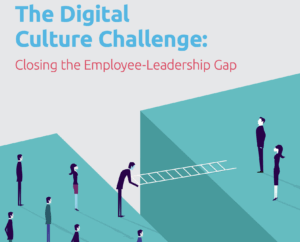Guest post by Fred Studer (@fredstuder), Chief Marketing Officer at NetSuite
As my friend Brian Solis says, “This is a time to question everything.”
Let’s start with marketing, because it’s overdue for a revolution.
Today’s customers are in the driver’s seat – it’s a buyer’s market and the buyers are better informed than ever. Prior to making a purchase today, customers research and compare products assiduously while tapping into both the opinions of people they know directly and reviews from online communities they trust. In fact, by the time a customer engages with an organization, they may well already be 70 percent of the way along a traditional sales cycle.
The challenge for all marketers is to re-imagine how and when to engage with this new breed of customer. When it comes to the channel or channels of engagement, the customer now calls the shots, so we need to ensure that we can deliver brand and message consistency across every single channel from in-person to online to phone to email and more.
Quick question: How many devices do you have on your person right now? The average is three and I have six! We need to offer the same marketing outreach and overall customer experience across all devices and engagement platforms. Our end goal must always be consistency, while connecting with the customer in the way they want to and at the time of their choosing. Our ultimate aim is to lay the foundations to build lifelong relationships with our customers based on trust via our marketing.
At this point, I should stress that rethinking marketing doesn’t necessarily mean throwing out all the old marketing techniques. Keep what works – just make sure that those tools can be seamlessly slotted into your newer marketing outreaches. And, I’m not talking about ‘what works’ as measured on a hunch basis or a gut feel, it’s what works based on the application of marketing analytics.
Big Data-Driven Personalized Marketing
The customer population you and I are addressing is highly diverse – potentially spanning four to five different generations. We have to consider our approach bearing in mind the individual we’re targeting. For an older generation of buyers, any overt use of the data we already have on them may have a negative impact on how they view us and our brand. However, for younger buyers who’ve never known a world without the Internet and have a different conception of online privacy, a highly personalized approach based on historical purchasing patterns, may be welcomed and boost our standing with them.
What I’m seeing emerge is a type of marketing with a very strong focus on individual buyers. This is made possible by aggregating all the relevant real-time and historical information about a customer and combining it with data from third-party sources including partners and social media profiles. This is the best business case and true application of Big Data to marketing – to be able to rapidly construct a rich, living three-dimensional model of an individual customer, not just a 360-degree profile based almost entirely on our own company’s data about that customer.
Customers Become Co-Marketers
As we become more familiar with our customers as individuals, we’re able to build a much stronger bond with them built around mutual trust. In effect, we’re looking to partner with buyers so they also become ambassadors for our brands. We market to them and they, in turn, market us to their customers. In many ways, marketing becomes more focused on community building and then helping to inspire members of that community to engage with their peers. Let’s think of ourselves and our customers as storytellers.
I think back to prehistoric times when communities would gather around a fire to share stories and to learn from each other. I see my role as a marketer to help create sparks of interest in our brand and products and then, together with our customers, to fan those flames into a welcoming blaze. Our customers then evangelize our product to their customers. We build the marketing fire and then our customers stoke it and keep it alight.






“Customers” and “buyers” have to go – part of the old “product” mentality where it was all about “sell, take the money and move on”. Commission was based on that single event and maximising commission was about making the numbers.
Now it is about sphere of influence.
Do it well and you are part of their eco-system – the things they use and recommend – part of what defines them. People are, for example, defined by their iPhone – or in business by the software they choose. They make a decision to be a Salesforce kinda guy or a Netsuite kinda gal. Those on the outside knocking to get in are ignored – not cool.
The revenues from this, over time, seriously outweigh the product sale. And keeping people on board is cheaper than finding new customers. But it requires a different mindset – friends not targets. And an end to the single event commission structure.
Peter, any catchy ideas for what we could call “customers” and “buyers” moving forward? Let’s coin a new term right here in the comments! 🙂
Do it!
Let me tell you what is special about the British Pub. It stands for public house. It is very different from a bar – the very words tell you the difference. In case they don’t in a bar the staff wear aprons to set themselves apart from the people who come in and have a barrier between them at all times. In a public house there is no barrier – you are treated as one of the family.
Having a term for something sets it apart. You can then pigeon-hole it. Categorise it. Denigrate it, perhaps. You can separate the people you don’t persuade (prospects) from those who fell for your pitch (buyers). But when you don’t have a word, you have to treat them all the same – buyers, influencers, sceptics, You have to work out how to be one of them – understand them, feel their issues with your offer or product (clue – more people reject the offer than the product) and share their elation when things work out.
Note the difference. No barrier. YOU and THEY merge into US. Once you get to “we make stuff for people like us because they want us to” you are suddenly ahead of all the people who “sell stuff because it makes me money and that’s all I care about.
“We’re not obsessed by anything you see. And that’s the deciding factor. We can’t win against obsession. They care, we don’t. They win.” Douglas Adams
Fantastic analogy in your comment above Peter, that was a great way of conveying your message by using a cultural difference that really resonates. I appreciate you sharing that with me.
So you’re saying, and correct me if I’m wrong, that the terms we have, and always seek so hard to create, are actually part of the problem?
And perhaps, maybe I’m taking this a step further on my own, we need to completely revisit how we teach marketing; as a mindset, not just a set of terms to be remembered. Because that’s what we’re ultimately getting at here, is how things are taught, and how our conversations around the discipline shape our decisions and the decisions we make/recommend for our clients.
The issue is that we still need terms in order to facilitate conversations that help younger students learn the game. I hear what you’re saying very loud and clear, but how do we teach people to care deeply about things? How do we teach people to continue to try and fail over and over again until they get things right and truly learn from their mistakes? One can’t really learn to become an entrepreneur, they just have to do it, experience the process of trial and error and learn from it until they become successful (and to those with fasting learning curves go the spoils!).
For example, looking at this article in particular, how do you teach someone to be great at “Big Data-Driven Personalized Marketing”? Well you can give them the numbers and the formulas and sit them down in front of a computer screen for a semester, but that isn’t going to teach them how to make hard decisions under pressure. But we still need some sort of common jargon we can use to communicate about big data in order to get that person into the situation where they can learn to be successful in the first place. Otherwise, we would just call customers “Humans.” Which is, oddly enough, the one term I couldn’t seem to shake as I was sitting at my desk trying to think of a new catchy term for customer.
I guess what I’m getting at, is that I agree with your comment above, but I believe you’re talking about instilling an entrepreneurial spirit in someone, and that really will require rethinking everything; specifically our educational institutions. But maybe that’s just what it will take to remind people that business is Human.
Daniel, let me state from the outset that I am very much a tyro in this game although of about the same or similar generation as Peter.
What I think Peter is saying is ‘they’ are us and that we are ‘them’. If we insist on thinking of others as ‘punters’ we, or I at least, should go home now.
If we have to go down the path of “instilling an entrepreneurial spirit in someone, and that really will require rethinking everything; specifically our educational institutions”, we might as well give up already.
The current and popular definition of the word entrepreneur seems to be concentrated around the idea of building a business. To me it means a ‘middle man’, an expediter.
In his post, Fred commented that he had six (count them) devices on him, I don’t have one! I have a mobile phone for talking to people who call me and that’s it.
If I can become the germ of a community which trusts me I will consider myself a successful entrepreneur.
http://www.chrishookeronline.com
I am so very much delighted to meet the kindred spirit in matters of market redirecting its attention towards personalizing the interaction with the buyer.
Still, I believe that the bigdata itself does not solve the problem of providing the necessary valid data about certain customer, as long as it is based on statistical and collaborative algorithms. For me, only developing the models of psyche for every individual user holds most promise.